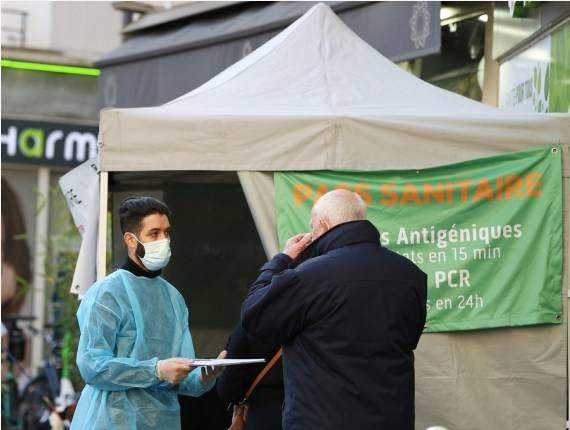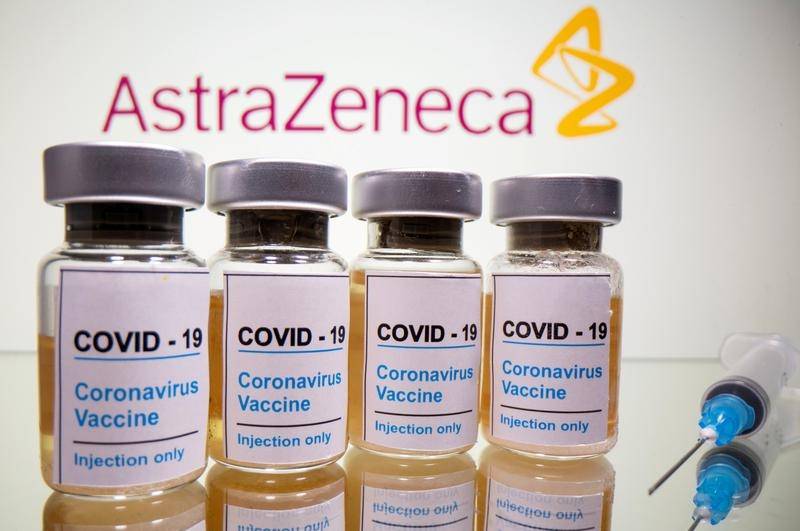According to official figures, England had its highest-ever daily number on Christmas day. A total of 113,628 cases were recorded on December 25, two days after hitting the previous record of 107,055 cases, reports Asian Lite News
Britain has reported another 98,515 coronavirus cases in the latest 24-hour period, bringing the total number of cases in the country to 12,209,991, according to official figures released.
The country also reported a further 143 coronavirus-related deaths, taking the national death toll to 148,003.
According to the figures released on Monday, England had its highest-ever daily number on Christmas day. A total of 113,628 cases were recorded on December 25, two days after hitting the previous record of 107,055 cases.
Figures are not available from Scotland, Wales and Northern Ireland due to the holiday period. As experts have noted, data around Christmas may not give a true picture of the situation, not least as people may be less likely to have a Covid-19 test.
Meanwhile, Health Secretary Sajid Javid has confirmed that the government will not be imposing any new coronavirus restrictions by the end of 2021.
Speaking to media, Javid said ministers look at the data “on a daily basis” but this has not changed over the Christmas period. He urged people to “remain cautious” ahead of the New year’s celebrations.
More than 89 per cent of people aged 12 years and above in Britain have had their first vaccine dose, and around 82 per cent have received both, according to the latest figures. More than 56 per cent have received a booster jab or the third dose.
It came after UK Prime Minister Boris Johnson urged its citizens to get vaccinated.
“We know two jabs do not give you enough protection against Omicron so whether it is your first, second or booster jab I urge you to book an appointment now,” UK Prime Minister Boris Johnson said in a tweet on Monday. He also urged the people to act cautiously given the rising number of Omicron cases. “Most importantly I urge everyone to get their first, second or booster jab without delay to protect yourselves and your loved ones,” Johnson added.
Europe faces massive Covid-19 surge
The number of Covid infections has surged to a new level in Europe as France has logged a record of nearly 1,80,000 coronavirus cases in the past 24 hours.
As many as 1,79,807 new Covid-19 cases have been registered in France within the past 24 hours, which is a record high number since the beginning of the pandemic.
French Health Minister Olivier Veran predicted on Wednesday that the Omicron coronavirus strain might become prevalent in the country in late December. As of Monday, 77 per cent of the French have been fully vaccinated against Covid-19,
Italy is also not far behind in the number of cases as in the past 24 hours the country on Tuesday reported 78,300 new cases of the coronavirus, which is over double the figure of the previous day.
An absolute record of over 17,000 new Covid-19 cases has also been logged in Portugal, the country’s directorate-general of health said on Tuesday.
Experts laud Oxford-AstraZeneca jabs
Britain’s early deployment of the Oxford/AstraZeneca vaccine to protect against Covid-19 may be responsible for the country’s lower death rates compared to other European countries, a UK vaccines expert has said.
Dr Clive Dix, former chairman of the UK’s Vaccine Task Force, told the Daily Telegraph’ that the Oxford/AstraZeneca vaccine manufactured and administered in India as Covidshield may offer stronger long-term protection against severe Covid-19 and death.
If you look across Europe, with the rise in cases, there’s also a corresponding lagged rise in deaths, but not in the UK, and we have to understand that, said Dr Dix.
“I personally believe that’s because most of our vulnerable people were given the AstraZeneca vaccine,” he said.

According to Our World in Data, a website run by the University of Oxford, the UK has 1.7 daily deaths from Covid per million people. In comparison, the European Union (EU) as a whole has almost four.
The key, Dix believes, is that although the RNA jabs such as Pfizer/BioNTech produce a more obvious and rapid jump in antibody levels in lab tests, other vaccines may be better at priming another part of the immune system called cellular immunity.
This includes various forms of T cells, including those that destroy infected cells, and also memory cells, ensuring a person can fight off an infection several years after they are first exposed to it.
They are slower to react than antibodies and do not prevent infection, but do halt the pathogen in its tracks, making it harder for the virus to cause damage.
We’ve seen early data that the Oxford jab produces a very durable cellular response and if you’ve got a durable cellular immunity response then they can last for a long time. It can last for life in some cases, Dix told the newspaper.

The only notable difference, according to the scientist, between the UK and Europe’s vaccine rollout was the approach to the Oxford/AstraZeneca jab.
European regulators approved the use of the vaccine long after the UK had rolled it out among its older age groups at the end of last year.
While MRNA vaccines like those made by Pfizer are based on the spike protein of SARS-CoV-2, the virus that causes Covid-19, to produce highly specific antibodies, AstraZeneca (Covishield), and other vaccines like those made by Novavax and Valneva use a wider approach.
We know that with adenoviral vector vaccines and adjuvanted proteins you get a much broader cellular response and I think we need to look at all that data across all the vaccines, said Dix, adding that there was nothing wrong with using Pfizer or Moderna as a booster, but alternative vaccines may be a better alternative in the long-term.
ALSO READ-Covid cases shoot up in China














